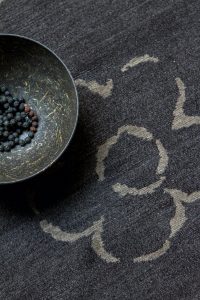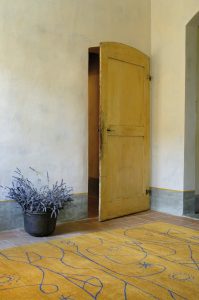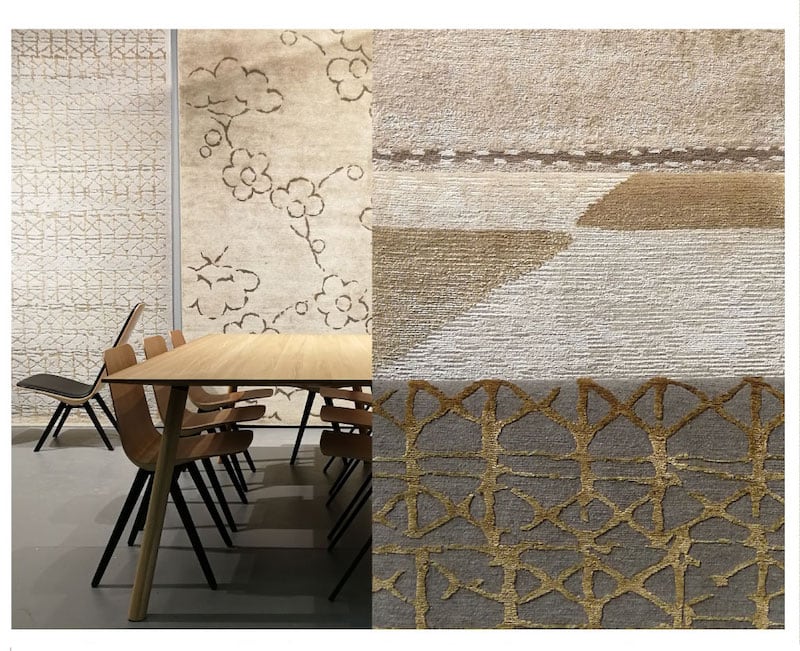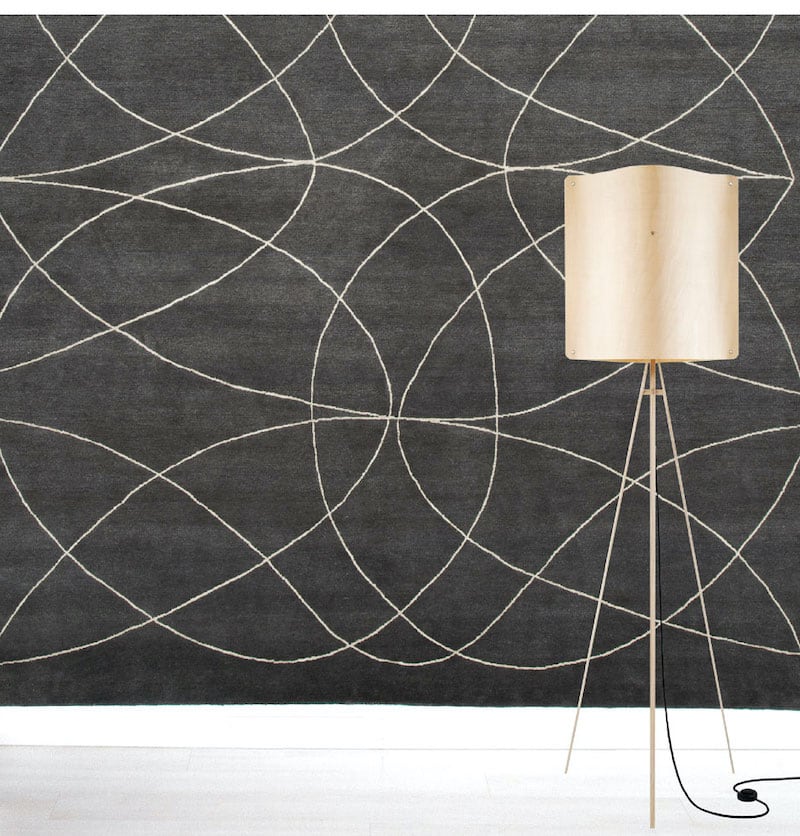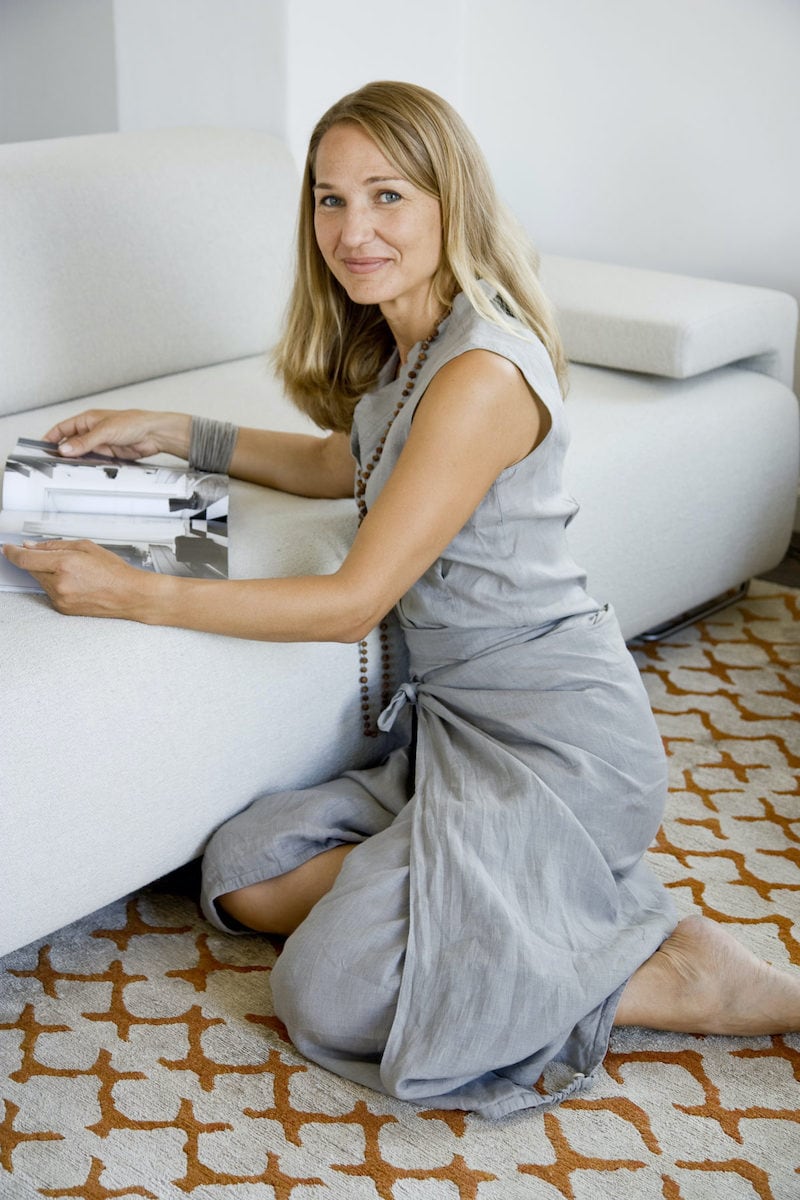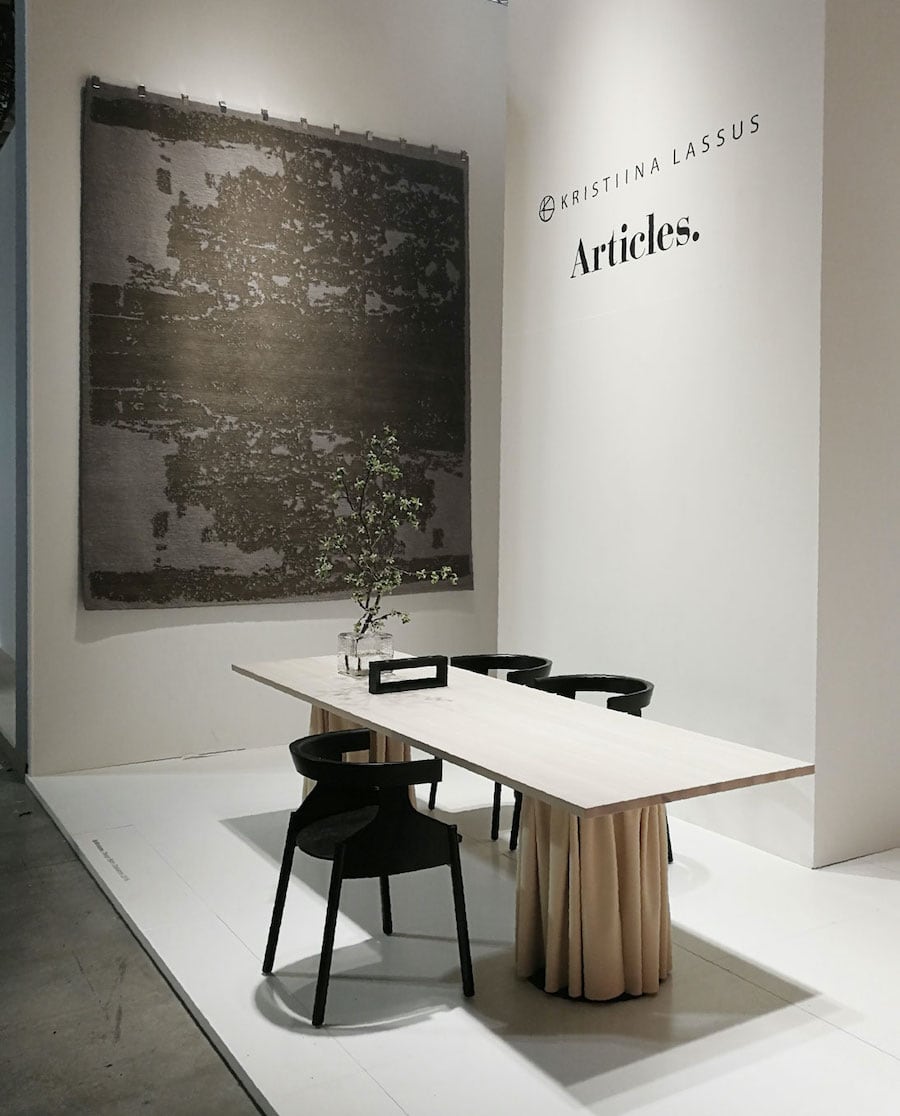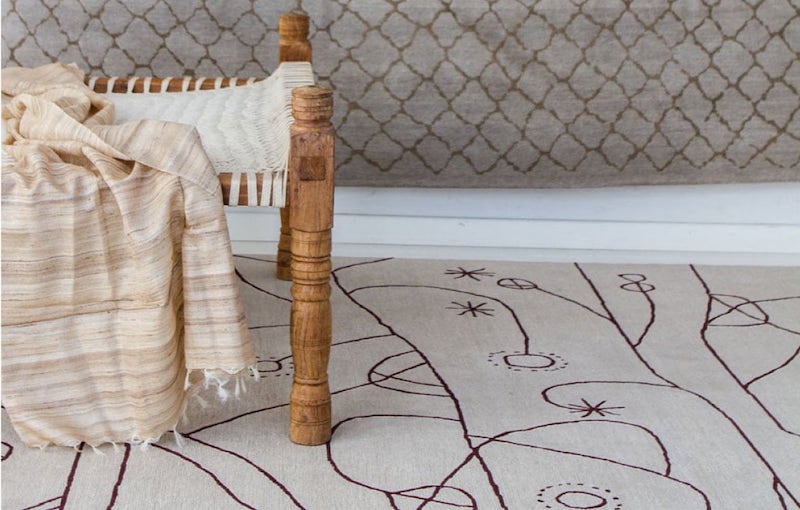Interview with Kristiina Lassus by MENA Carpet News
For several years Kristiina lived between two counties, Italy and India, and during this period she started developing her first collection of rugs, both in India and Nepal.
Currently, Kristiina’s production concentrates in Nepal.
1. Please let us know more information about Kristiina Lassus Studio, history and success story.
My background is in interior architecture and furniture design, but I’ve always had a passion for arts and crafts in a more broad way. I was born in Finland, but been living in Italy for over 20 years.
After having gained versatile work experience in the field of design-production-commerce I founded Kristiina Lassus Studio in Milan in 2003. It provides services in interior design, product design and art direction. In 2007 I launched my collection Rugs Kristiina Lassus on the market and it has since then become my main activity.
I believe unique design, coherency and quality are key components for differentiation and gaining recognition on market. For me authenticity, customer service, trustworthiness are just as important for successful business.
2. What was your main motivation when you launched your own trademark as a carpet designer?
I wanted to offer something different and unique to the market.
Back in 1994 when I first thought of wanting to create my own rug collection, a contemporary alternative for Persian rugs was missing on the market. In addition, there was a lack of something high-end, suitable for minimalist interiors, to suite both Scandinavian and Italian style.
When 10 years later I started my new design practice in Milan, I finally found time for creating my own rug collection.
I am very hands-on person, fascinated about factories and artisanal work, so for me it was very natural to connect with producers since the beginning, and at the same time be in direct contact with customers.
I launched my own trademark, for marketing purposes. It helps to communicate the brand identity and adds value to the customer experience.
3. What is your range of products offer to the market?
Initially, I produced both in India and in Nepal, and with a bigger variety of qualities.
Currently, I specialize in high-end hand-knotted contemporary rugs and my production is concentrated in Nepal.
Sustainability and authenticity are very important for me and, for this reason, my work concentrates on long-lasting artisan rugs, natural materials, neutral tones, and timeless design.
However, as an industrial designer, I may look into industrial carpet and textile production as well one day, who knows.
4. How do you evaluate carpet industry in Europe specially luxury carpet market?
For me, luxury product is handmade, of unique personality and of small editions. Possibly also made to order and customizable.
Whilst in Europe there are plenty of interesting manufacturers, designers and brands, the rug and carpet production is mostly industrial.
I find the artisanal production more close to my personal research and expression. As hand-knotting technique is not available in Europe, I have to source from more distant countries.
5. How do you evaluate luxury carpet market in the Middle East? Do you have any export to this region?
The Middle East is an interesting market. In these countries, there is a long tradition and expertise on luxury rugs. I feel there is a growing interest also in more contemporary, essential styles.
Sadly knock-offs seem to be a problem, which I have personally experienced in various occasions.
I believe, however, that awareness and appreciation of original pieces will grow in the near future.
6. How was covid 19 pandemic effect on carpet business and how you predict post corona market reaction?
Corona affected business in many ways. For me managing the production from distance, without being able to visit the factories in person, made operations more challenging. In addition, it reflected to shortage of staff due to smart working, an increase in delivery times and costs, difficulties making progress in product development, and prolonged project lead times.
At the same time, due to smart working, people spend more time at home and, as expected, attention to the quality of our personal living environment has grown notably in the last 12 months. I expect this trend to continue growing in the coming years.
7. COVID 19 shows us we should rely more on sustainability and green products, how we can improve sustainability in the carpet and flooring sector?
Sustainability means many things to me, e.g. purposefulness, long-lasting products, ecological matters, survival of cultural know-how, craft skills, and localness.
It means naturally also ethical aspects: working conditions, fair pay, as well as the well-being of sheep and non-exploitation of any raw material resources.
I have since the beginning been a member of fair trade organizations, first of Good Weave and nowadays of Label Step.
Contact With Kristiina Lassus
Instagram: rugskristiinalassus



